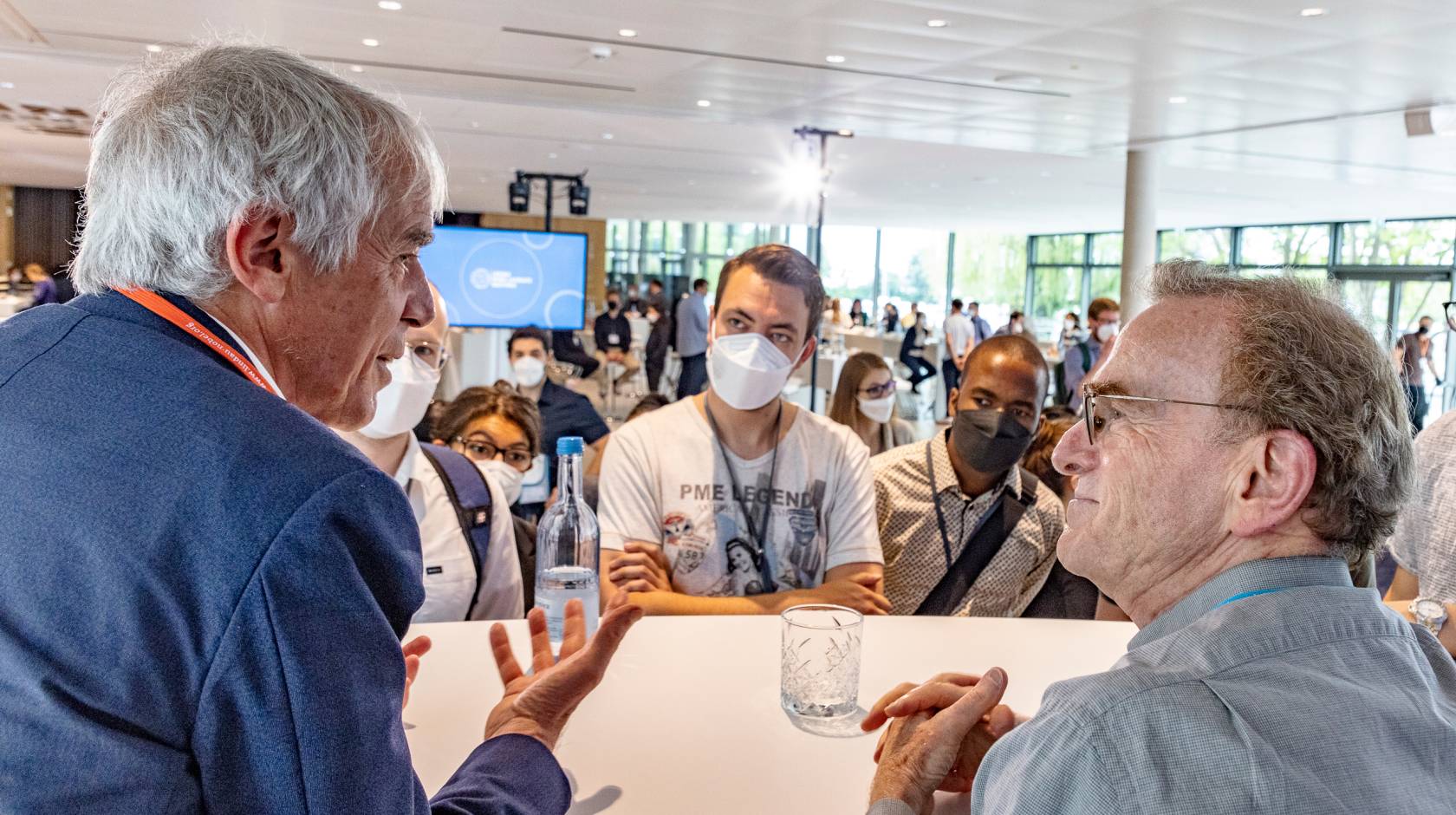Paula Hermann, UC Newsroom

While academic and industry conferences are plentiful, only one offers an unparalleled learning and networking experience for early-career scientists and economists to engage with peers and Nobel laureates from around the world: the Lindau Nobel Laureate Meetings. And for promising University of California students and postdocs, now is the time to apply for a fellowship to attend next summer’s session in Lindau, Germany, focused on physiology and medicine.
The UC President’s Lindau Nobel Laureate Meetings Fellowship is open to students and postdocs from all 10 UC campuses, as well as the three UC-affiliated National Laboratories. With funds provided by UC Investments and the Office of the National Laboratories, the fellowship covers travel to and from Germany, food, lodging, and conference fees.
Next year will mark the fourth year that the fellowships will be awarded to a select group from UC, all of whom are nominated by faculty or research directors and chosen by the UC president.
UC’s third class of Lindau fellows attended the two meetings this summer — one centered on chemistry and the second on economic sciences — and included 29 participants from the UC campuses and six from the three National Laboratories. During the two prior years when the pandemic forced the meetings to be held fully online, more than 40 fellows were able to stream the lectures in real time.
Samuel Mann, a postdoc at UC San Francisco, was particularly excited to network in-person with the 600 young scientists representing more than 100 countries at this year’s chemistry-focused meeting.
“I’ve been to international conferences, but none that had such an expansive worldwide representation,” Mann said. “I enjoyed interacting with colleagues on the same level as me from countries with varying political and social climates that influence how they think about science.”
Isabel Barraza Alvarez, a fourth-year doctoral student in chemistry at UC Santa Barbara and the daughter of Mexican immigrants, was inspired by what she saw at Lindau.
“Seeing the diversity among the attendees made me really hopeful for the future of science,” she said. “Very few women and people of color have made it far enough to get a Nobel prize, so it was refreshing to see so many diverse young people who are being accepted into the scientific world.”
In addition to absorbing lectures from Nobel laureates, attendees participated in small group dialogues with the laureates, exchanging thoughts on life, science and current events. The UC fellows also enjoyed getting to know one another and expanding their networks beyond their institutional setting and academic circles.
Graduate student Hannah Slocumb, who studies organic chemistry at UC Irvine, was enamored with the speakers.
“There was a mixture of speakers from all parts of the world who are doing amazing science — people you may have heard of or maybe read their papers,” said Slocumb, who returned with a new perspective on the Nobel Prize.
“I always knew the Nobel went to people whose work has a significant impact on the world, which is the kind of science I want to be doing. But I used to think it was about discovering new science. At Lindau, I found that a lot of people are interested in making new tools for the next discovery. That’s something I’ve been thinking about in my own research. It's cool that I can do this reaction, but what sort of application does it have?”
The deadline for the June 2023 Lindau Physiology/Medicine Meetings is October 17, 2022. Campuses should identify a point of contact who may forward up to five nominations to the Office of the President at UCLindauNobelApplication@ucop.edu. Overall selection criteria are provided by the Lindau organization and are available here.
Administrators and faculty are encouraged to share news of this extraordinary program and upcoming deadline with top students and postdocs. Campus representatives and potential applicants may reach out to professor emeritus Robert Powell at rplowell@ucdavis.edu with any questions.

